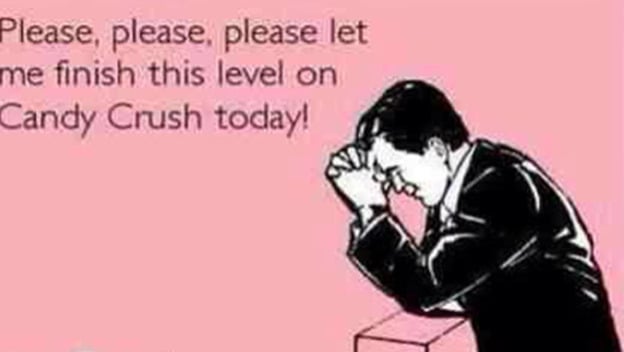I’m worried about free-to-play games. A lot of people are getting their start as gamers from these Android, iOS, and PC affairs, and I’m afraid they’re learning the wrong lessons from their experiences. I mean, it’s great that we’re getting more people interested in the hobby, but free-to-play games have quite a few issues, and I’m concerned that people who get their start there are learning some horrible lessons. We didn’t used to have this problem. If you’re reading this, you probably got your start on a PS2 or Xbox, or maybe you are even part of the Nintendo-Hard generation like me. These newcomers, however, are picking up habits from free-to-play games that could be hard to shake.
The first thing new gamers are learning with free-to-play is that it isn’t worth paying for a game. They’re looking on their PCs and mobile devices and seeing an assortment of games that don’t require any initial investment. They jump in and they play. There’s no sense of saving up and feeling like you’ve earned the experience. It’s just there.
When I was a kid, I usually had to save up for the games I wanted. (It’s still happening!) I’d see something I want coming soon and would place my pre-order or have a certain amount of money set aside in my account earmarked for that purpose. Then, finally, that moment would come: I could afford that $40 or $60 game. I still sometimes get that feeling of glee when I purchase one of the games I couldn’t wait for and play it for the first time, and, because I saved for it and spent so much on it, I enjoy it more. I’ll beat it, dangnabbit, because I spent good money on it!
Of course, free-to-play isn’t free. That’s just the gimmick to get people in the door. Once they start, they’ll eventually hit walls. Perhaps they need “energy” to keep playing right now. Maybe the free weapons are as effective as cardboard tubes. Or maybe kicking in a little money will allow people to skip a particularly frustrating challenge. These free-to-play gamers are learning they can pay to get ahead and give companies money for intangible items: “You can pay to skip a level in Cut the Rope or Angry Birds ? Let’s go ahead and do that; we don’t have all day.” “I can buy a better weapon in Gangstar that will make people quake in fear when they see me? Sure!”
It’s gotten so bad that I can’t play Uno & Friends . It’s my casual weakness, and I want to, but I can’t, because first I’d have to buy my way into a game if I don’t have enough tokens immediately available. Still, I wouldn’t want to buy in, because I’m afraid the other players may buy power-ups that would let them see my cards or force me to draw excessive amounts of cards.
These free-to-play games are teaching people that it’s fine to pay to make things easier or buy these intangible items. Instead, people should actually be playing the games so they naturally become more skilled and should save their money for more worthwhile investments. (Like, say, more games.) And yes, I know some MMOs have been teaching these lessons for years, but at least in some MMOs, people are able to recoup their investment via in-game auction houses. Almost every other kind of free-to-play game takes the money and runs.
Worst of all, I fear that free-to-play is teaching people that games are disposable. Think about it. What do you do if you play a free-to-play game and find you’ve hit a pay-to-play wall? You abandon it. There are a number of Android and Facebook games that are dead to me just because I know I can’t get any further without investing. So, I give up. I move on to something else. I don’t think twice about it (as I would about a game I paid for) because I didn’t put any money into the game. And others may also figure, “I didn’t put much money in, so why bother?”

The same happens when a free-to-play game is no longer profitable and is shut down. Like Pet Society . I never put any money into this Facebook game, but I felt some kind of obligation to it. I mean, I’d been playing for over four years, practically since I’d joined Facebook. I’d log in every night, earn the free coins/items for doing so, and then go on my way. When EA shut it down, I was momentarily upset, but then I figured it was no big deal. I have a tablet I use pretty often now, so I’ll find an Android free-to-play to replace it. These free-to-play games aren’t connecting in the way paid games do, and I worry people who play more free-to-plays are learning it isn’t worth getting invested in any game.
The absolute worst of these free-to-play lessons isn’t any of the ones gamers are learning. No, it’s the one companies are. Developers and publishers are discovering that people are okay with all of these practices. They will jump into free-to-play and pay to do better or get shinier equipment. Then, when they’re bored or fed up, they’ll move on to the next free-to-play affair. All of this means we’re only going to see more free-to-play games over the years as well as see free-to-play practices inch their way into paid games. We’re already seeing microtransactions in games like Dead Space 3 , Call of Duty , and Knights of Pen and Paper +1 .
Free-to-play is fine in small doses, but please don’t cave in and let them dictate your playing practices. Grab some real, paid games as well so you see it isn’t all about instant gratification and deceptively easy going.
